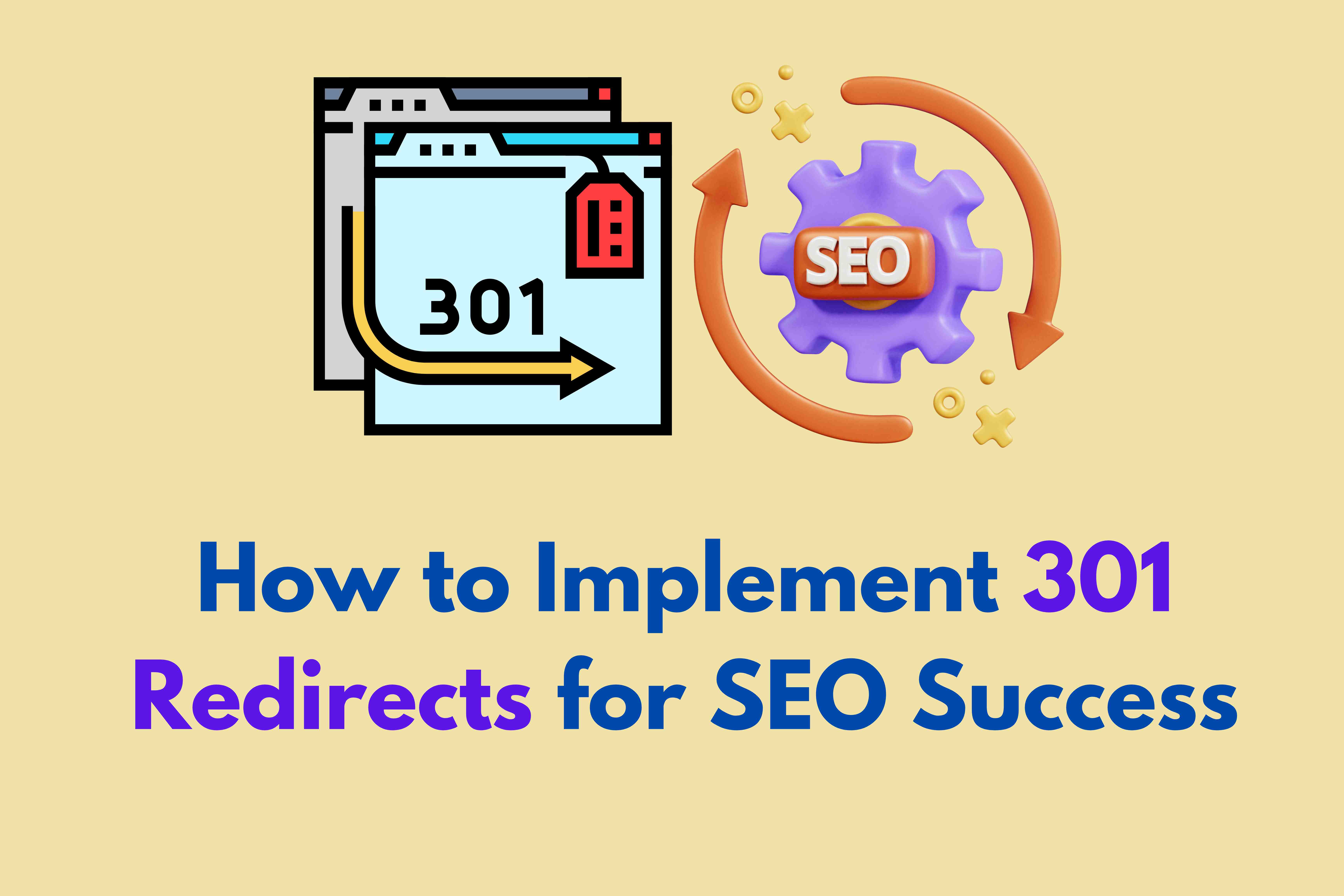Table of Contents
- Introduction
- Understanding 301 Redirects
- Why 301 Redirects Are Crucial for SEO
- When to Use 301 Redirects
- Best Practices for Implementing 301 Redirects
- Latest SEO Trends in Redirect Implementation
- Conclusion
- About Don Hesh SEO
Introduction
Implementing 301 redirects effectively is a critical component of maintaining and enhancing your online store’s visibility and driving organic traffic. This guide will help business owners understand the importance of 301 redirects, when to use them, and the best practices for implementation. We’ll also explore the latest SEO trends to ensure your redirect strategy aligns with current best practices.
Understanding 301 Redirects
A 301 redirect is a permanent redirect from one URL to another. It informs search engines and users that the original URL has permanently moved to a new location. This is crucial for preserving the SEO value of the original page, ensuring that the new page retains the search engine rankings and traffic.
Why 301 Redirects Are Crucial for SEO
301 redirects are essential for several reasons:
- Preserving SEO Value: They help maintain the SEO value and ranking of the original page.
- Improving User Experience: Redirects ensure users land on the correct page, reducing frustration and improving navigation.
- Preventing Broken Links: They prevent users from encountering 404 errors, which can harm your site’s credibility and SEO.
When to Use 301 Redirects
Use 301 redirects in the following scenarios:
- Changing URLs: When you change the URL of a page, a 301 redirect ensures the new URL retains the old URL’s SEO value.
- Merging Content: When you merge multiple pages into one, use 301 redirects to point the old URLs to the new, consolidated page.
- Website Migration: During a website migration or redesign, use 301 redirects to ensure all old URLs point to the new URLs.
- Deleting Pages: When you delete a page, redirect its URL to a relevant existing page to preserve SEO value and user experience.
Best Practices for Implementing 301 Redirects
Plan Your Redirects
Before implementing redirects, plan them carefully. Identify all the URLs that need to be redirected and map out their new destinations. This helps avoid mistakes and ensures a smooth transition.
Implement Redirects Carefully
Use server-side redirects (e.g., via .htaccess for Apache servers or web.config for IIS servers) for the most effective implementation. Ensure that each old URL points directly to the new URL without unnecessary intermediate steps.
Use SEO Tools for Monitoring
Tools like Google Search Console, Screaming Frog, and Ahrefs can help monitor your redirects. They can identify issues such as redirect chains or loops that can negatively impact SEO.
Update Internal Links
After implementing 301 redirects, update internal links to point directly to the new URLs. This improves user experience and ensures that link equity is passed efficiently.
Avoid Redirect Chains
A redirect chain occurs when one URL redirects to another, which then redirects to another, and so on. This can dilute SEO value and slow down page loading times. Ensure that redirects are direct and minimize the number of steps.
Latest SEO Trends in Redirect Implementation
- Mobile-First Indexing: Ensure that redirects work seamlessly on both desktop and mobile versions of your site, as Google now uses mobile-first indexing.
- HTTPS Migration: When migrating from HTTP to HTTPS, use 301 redirects to point all HTTP URLs to their HTTPS counterparts to maintain SEO value.
- Content Consolidation: Combining similar or outdated content into comprehensive, high-quality pages and using 301 redirects can improve your site’s authority and ranking.
Conclusion
301 redirects are a powerful tool for preserving and enhancing your site’s SEO value during URL changes, content consolidation, or site migrations. By following best practices and staying updated with the latest trends, you can ensure a smooth transition and maintain your site’s visibility and organic traffic.
About Don Hesh SEO
Don Hesh SEO is a leading SEO consultant and Google Ads consultant dedicated to helping businesses enhance their online presence and drive organic traffic. Our expertise in AI-driven SEO strategies ensures that your business stays ahead of the competition. Partner with SEO Sydney to leverage the latest AI technologies and achieve your SEO goals efficiently and effectively.



